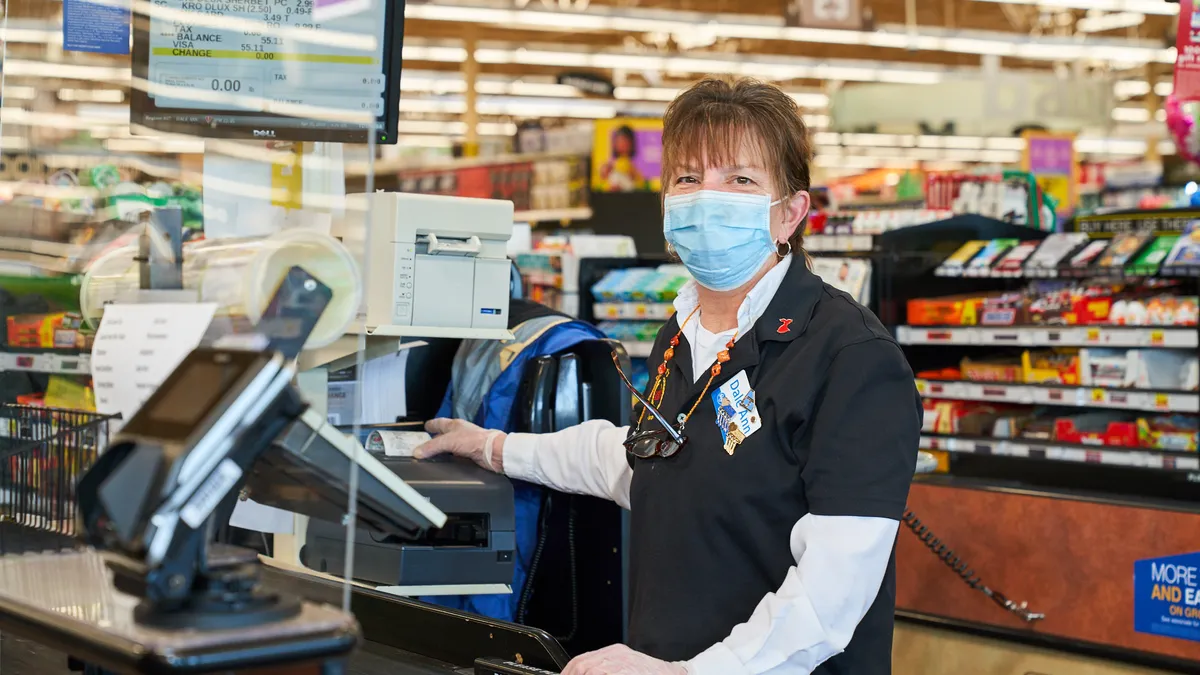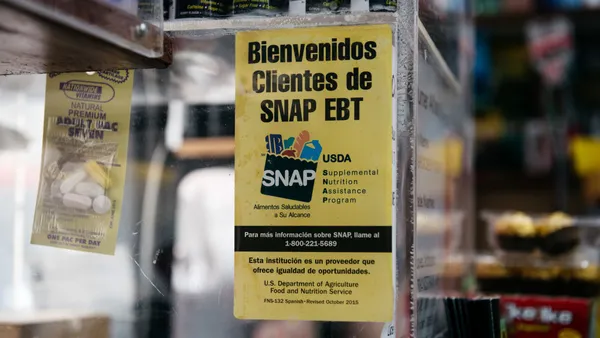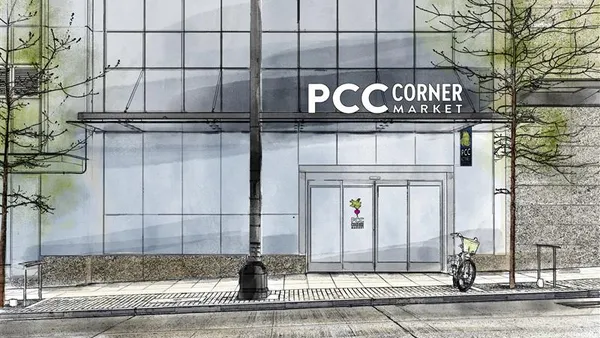Dive Brief:
- Grocery retailers aren’t doing enough for their workers even after stepping up efforts to protect and compensate them during the pandemic, according to a new report from Oxfam America. The organization is calling on grocers, who have continued to profit, to adopt new worker-focused strategies to protect employees and give them a voice.
- The report analyzed formal policies from Albertsons, Costco, Kroger, Walmart and Amazon/Whole Foods, looking at paid sick leave, hazard pay, protective gear, engagement with workers, and gender and dependent care.
- The pandemic has shed light on deep, systemic inequalities and failures of the economic system, according to Oxfam. “Nowhere is that more visible today than in America’s supermarkets, where workers are risking their lives every day in order to keep food on our tables,” Irit Tamir, director of the organization's private sector department, said in a statement.
Dive Insight:
The Oxfam report acknowledges that the grocers it evaluated have succeeded in putting some measures in place to better protect workers during the pandemic, including hazard pay or bonuses and protective gear.
But as the nation looks at getting back to “normal,” Oxfam concludes that grocery store employees are still at risk as restrictions surrounding COVID-19 begin to relax. Some workers feel that protective measures have been inadequate, while others are worried because many of their employers have ended or will soon end hazard pay.
When it comes to negotiating with unions, Oxfam said grocers have fallen short. Only Albertsons and Kroger showed willingness to engage with unions during the pandemic, while Costco and Walmart showed no signs of negotiation, according to the report. Amazon has reportedly tracked Whole Foods stores to minimize talk of unionizing, the report said.
Gender equality has not been properly addressed either, according to Oxfam. The report said 58% of women lack access to paid sick leave, and that women are more likely to be single parents juggling a major share of childcare responsibilities. Amazon has shown some progress in this area, now offering 10 days of subsidized child and adult care until Oct. 2 for all its employees in the U.S., including Whole Foods, Oxfam said.
At the end of the report, Oxfam offers a series of reasonable recommendations in each area it studied. The group calls on grocers to embrace labor unions, provide retroactive premium pay dating back to the start of the crisis, continue measures like social distancing and permanently provide two weeks of sick leave, regardless of the illness.
Beyond the grocers analyzed in the report, other food retailers have taken steps to better protect workers. H-E-B has just announced it would transition its temporary hazard pay to permanent wage increases for hourly employees in Texas. Natural Grocers said in April it would make $1 of its $2 hazard pay permanent.
The pandemic has accelerated worker benefits and protections for some grocers, while others, like Lidl, had been progressing in this area even before COVID-19 hit.













